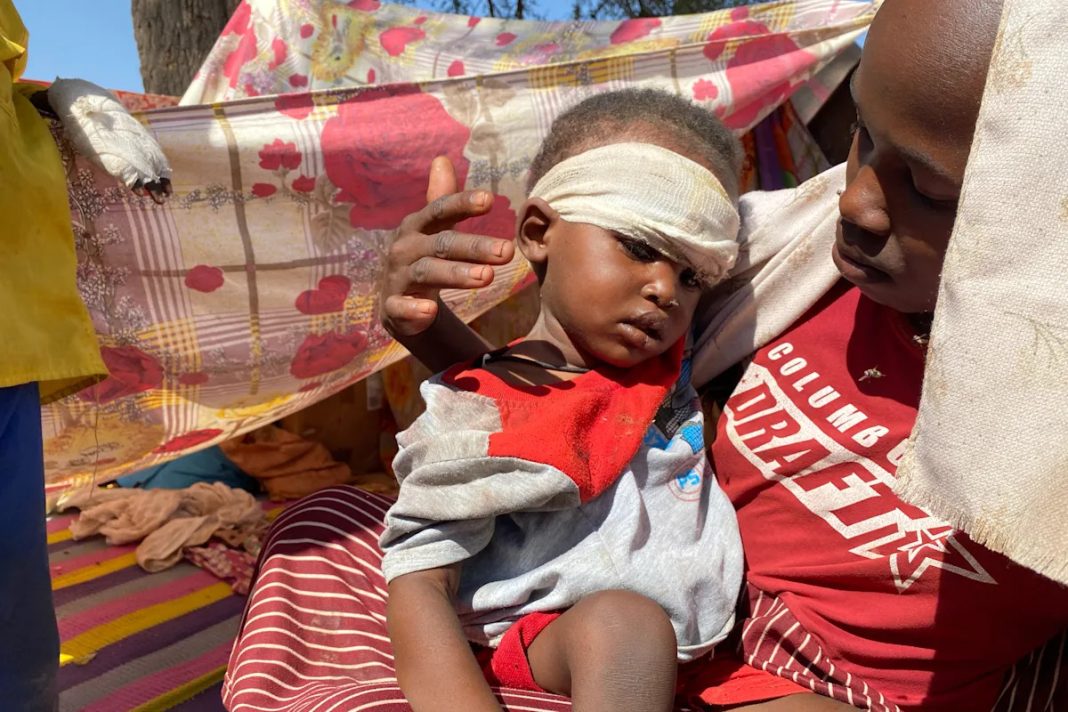CAIRO (AP) — Two out of three people in war-torn Sudan are in dire need of aid, a U.N. official said Wednesday.
The situation is getting “horrific for civilians,” U.N. humanitarian affairs and relief head Tom Fletcher told The Associated Press, as aid groups struggle to deliver much-needed assistance to communities.
“The access we need is far too limited by the conflict,” he said during a phone interview from Darfur.
The military and the rival paramilitary Rapid Support Forces, or RSF, went to war in 2023, when tensions erupted between them. The army and RSF are former allies that were supposed to oversee a democratic transition after a 2019 uprising.
The fighting has killed at least 40,000 people, according to the World Health Organization, and displaced 12 million others. However, aid groups say the true death toll could be many times higher.
Overcrowded camps
As the war continued to rage on for more than two years, humanitarian resources were significantly depleted across the country, said Amy Pope, director-general of the International Organization for Migration, or IOM.
“People are exhausted and vulnerabilities are extremely high,” Pope told the AP by phone from the capital, Khartoum.
A new influx of displaced people in the Darfur region has further strained already overcrowded camps and depleted limited resources. The Darfur and Kordofan regions have become the epicenter of the fight.
Last month, the RSF seized el-Fasher, the capital city of North Darfur that was besieged for more than 18 months, and rampaged through the Saudi Hospital in the city, killing more than 450 people, according to WHO, and went house to house, killing civilians and committing sexual assaults.
Mashad Organization, a rights group, said Sunday that hundreds of girls were subject to sexual violence.
The IOM estimates that around 82,000 people had fled the city and surrounding areas as of Nov. 4, heading to safe spots, including Tawila.
Scale of need ‘incredible’
Doctors without Borders, or MSF, said on Wednesday that its teams have seen “staggering” malnutrition rates among those who fled el-Fasher and arrived in Tawila.
Pope also briefed reporters virtually from Khartoum on the gruesome details of the civil war, saying that most people fleeing the areas impacted describe watching civilians be shot on site and walking over dead bodies.
“The scale of the need is absolutely incredible. And of course, it is coinciding at a time when there have been unprecedented humanitarian cuts to humanitarian assistance around the world,” Pope said.
Potential truce
Sudanese Foreign Minister Mohi al-Din Salem said Tuesday that his government doesn’t engage in an official capacity with the U.S.-led mediator group known as the Quad, which put forward a humanitarian truce proposal in September.
“The Quad group was not formed by a decision from the Security Council or an international organization,” said Salem, adding that his country engages on a bilateral basis with countries such as Egypt, whose foreign minister, Badr Abdelatty, said Wednesday that his country stands firm against any attempts of dividing Sudan.
The U.S.-led plan would start with a three-month ceasefire followed by a nine-month political process, according to Massad Boulos, a U.S. adviser for African affairs.
The RSF said last week that it agreed to the proposed humanitarian truce, and while the army welcomes the proposal, it said it will only agree to a truce if the RSF withdraws from civilian areas and surrenders its weapons.
Fletcher said on Wednesday that his agency is in contact with warring parties to push for aid delivery.
___
Farnoush Amiri contributed to this report from the United Nations.

